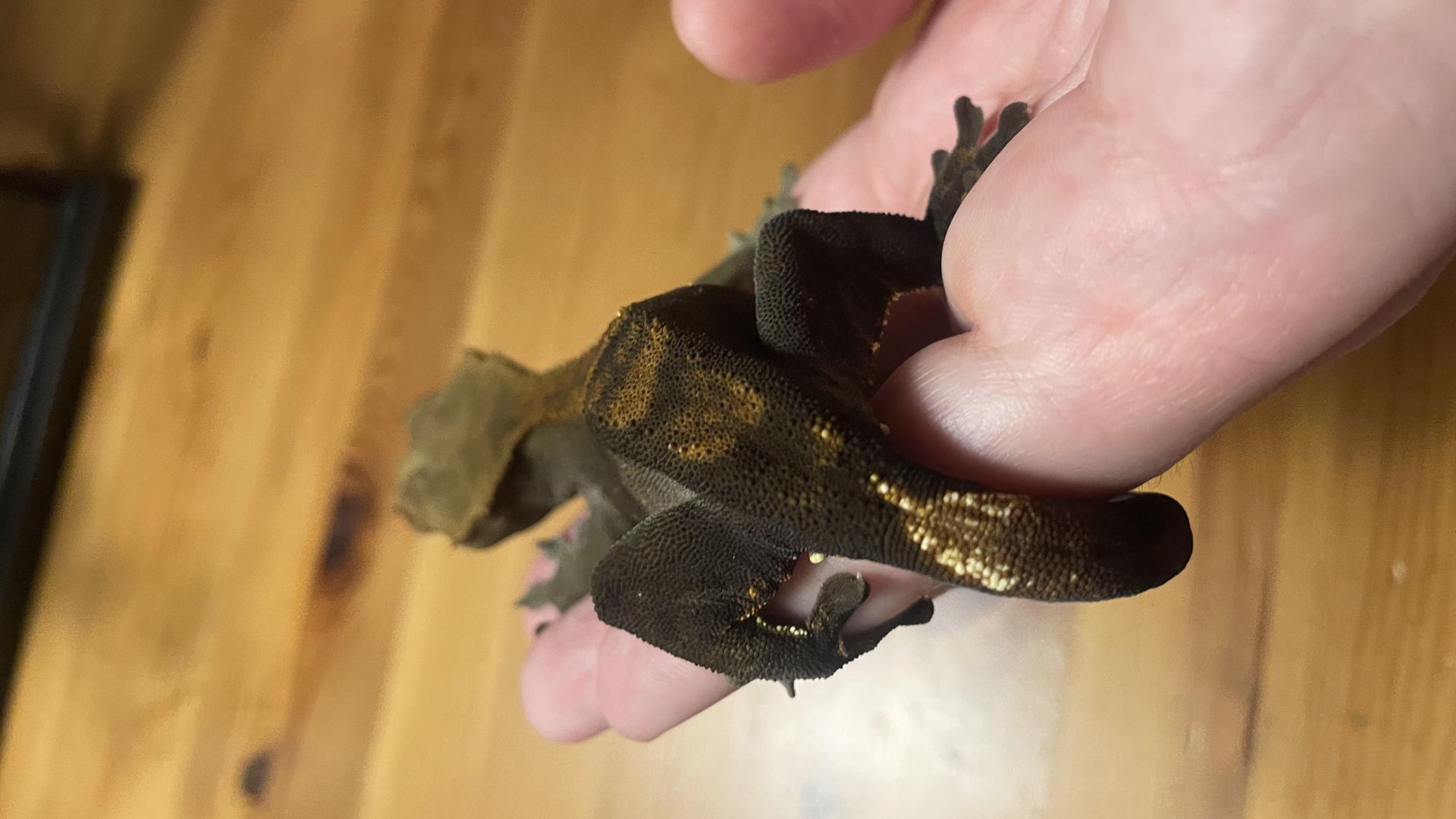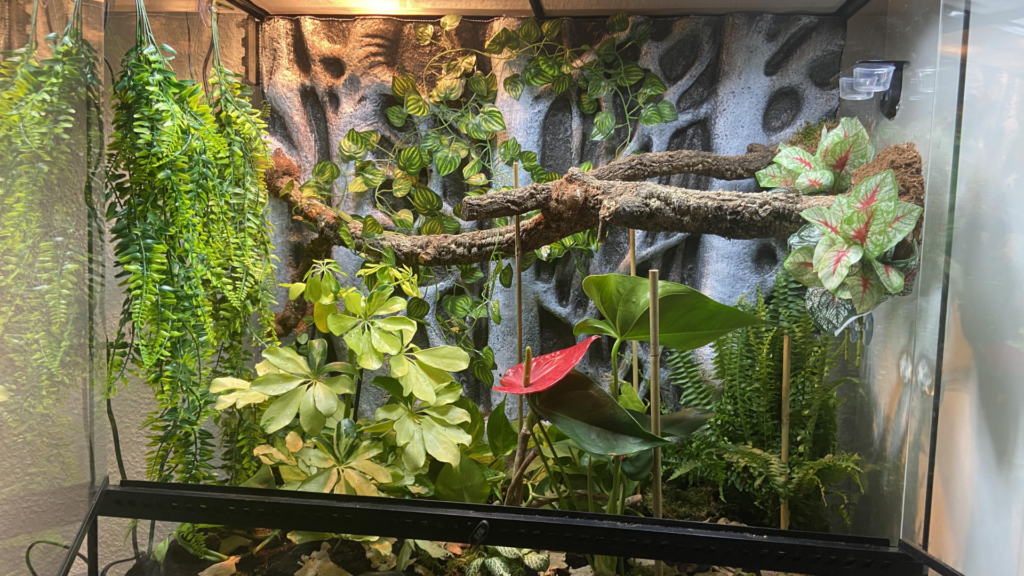
Key Takeaway:
- Provide proper nutrition and maintain proper temperatures and humidity levels to keep your crested gecko healthy and prevent illness.
- Regularly monitor your crested gecko for signs of illness and seek veterinary attention immediately if you notice anything concerning.
- Prepare yourself emotionally for your crested gecko’s eventual passing by acknowledging your emotions, seeking support, and planning ahead for their remains.
- Remember to celebrate their life and be gentle with yourself during the grieving process.
Losing a pet is always heartbreaking, but it’s important to understand the reasons behind your crested gecko’s passing in order to prevent it from happening again.
In this article, we’ll explore the common reasons why crested geckos die, the signs of illness to look out for, and the valuable lessons we can learn from the loss of these fascinating creatures.
Why Did Your Crested Gecko Die Suddenly?
There are several possible reasons why a crested gecko might die suddenly. Here are some of the most common:
Stress
Crested geckos are sensitive creatures that can become easily stressed if their environment is not suitable for their needs.
This can include a lack of hiding spots, poor temperature regulation, or too much handling.
If a crested gecko is under too much stress, it can lead to a weakened immune system and even death.
Impaction
Impaction occurs when a crested gecko ingests something that it cannot digest.
This can be caused by swallowing substrates, such as sand or wood chips, or even pieces of plastic or other foreign objects.
Impaction can lead to blockages in the digestive system, which can be fatal.
Infection or disease

Crested geckos are susceptible to a variety of infections and diseases, including respiratory infections, mouth rot, and parasites.
If left untreated, these can quickly become serious and even life-threatening.
Poor nutrition
Crested geckos require a balanced diet that includes a variety of insects, fruit, and specialized crested gecko food.
If a gecko is not receiving the proper nutrition, it can lead to metabolic bone disease, organ failure, and other health problems.
Environmental factors
Crested geckos require specific environmental conditions in order to thrive.
This includes proper temperature and humidity levels, as well as adequate lighting.
If these conditions are not met, it can lead to a weakened immune system and health problems.
It’s important to note that sudden death in crested geckos can also occur due to genetics or other factors outside of an owner’s control.
However, by ensuring that your crested gecko has a suitable environment, proper nutrition, and regular check-ups with a veterinarian, you can help to reduce the risk of sudden death.
Signs Of A Dying Crested Gecko

It’s important for crested gecko owners to be able to recognize the signs of a dying gecko so that they can seek veterinary care as soon as possible.
Here are some common signs of a dying crested gecko:
- Loss of appetite: A crested gecko that stops eating or shows a decreased appetite may be experiencing health issues or stress.
- Lethargy: A dying crested gecko may appear weak and lethargic, and may not move around as much as it normally would.
- Weight loss: A sudden drop in weight can be a sign of serious illness or disease.
- Discoloration or skin problems: A sick crested gecko may have skin that appears discolored or may have sores or other abnormalities on its skin.
- Breathing difficulties: A crested gecko that is struggling to breathe or has labored breathing may be experiencing respiratory issues.
- Abnormal behavior: A dying crested gecko may display abnormal behavior, such as being more aggressive or less responsive to its environment.
- Seizures or spasms: A gecko that is experiencing seizures or muscle spasms may be suffering from a neurological condition or other serious health issues.
What Does A Dead Crested Gecko Look Like?
When a crested gecko dies, it will generally exhibit a few visible signs that it has passed away.
Here are some things to look for if you suspect that your crested gecko has died:
- Limp body: A dead crested gecko will have a limp body that doesn’t move or respond to stimulation.
- Sunken eyes: The eyes of a dead crested gecko may appear sunken or closed.
- Stiffness: After death, a crested gecko’s body will become stiff due to rigor mortis, which sets in within a few hours after death.
- Foul odor: A dead crested gecko may emit a foul odor as it begins to decompose.
- Discoloration: Depending on the cause of death and the length of time since passing, a dead crested gecko may show discoloration or signs of decay.
Is Your Crested Gecko Dead Or Hibernating?
It can be difficult to tell whether a crested gecko is dead or hibernating, as they may exhibit similar behaviors in both states.
are some things to look for that can help you determine whether your crested gecko is dead or hibernating:

Breathing
A crested gecko that is hibernating will continue to breathe, although at a slower rate than when it is awake.
If your gecko is not breathing at all, it may be dead.
Body temperature
A hibernating crested gecko will have a lower body temperature than when it is active.
You can use a thermometer to check your gecko’s body temperature; if it is too low or too high, it may indicate that your gecko is not hibernating properly or has died.
Responsiveness
A hibernating crested gecko will be less responsive than when it is awake, but it should still respond to stimulation such as touch or movement.
If your gecko does not respond at all, it may be dead.
Duration
Hibernation in crested geckos typically lasts for a few weeks to a few months, depending on the individual gecko and environmental conditions.
If your gecko has been in a dormant state for an unusually long time, it may indicate that it is not hibernating properly or has died.
What To Do With A Dead Crested Gecko?
Losing a pet can be a difficult experience, and it’s important to handle the remains of your crested gecko with respect and care.
Here are some options for what to do with a dead crested gecko:
Burial
Many people choose to bury their pet crested gecko in a backyard or other suitable location.
It’s important to dig a hole deep enough to prevent scavengers from disturbing the remains.
Cremation
Some pet owners choose to have their crested gecko cremated. This option can provide a way to keep the ashes as a memorial or scatter them in a meaningful location.
Donation
Some veterinary schools or research institutions may accept donations of deceased animals for scientific study.
If you’re interested in this option, it’s best to contact the institution directly to inquire about its policies and procedures.
Disposal
If none of the above options are feasible, you may need to dispose of the remains in accordance with local regulations.
Check with your municipality to determine the proper procedure for disposal.
How To Prevent Your Crested Gecko From Suddenly Dying Next Time
Losing a crested gecko suddenly can be a devastating experience, and it’s natural to want to take steps to prevent it from happening again.
Here are some tips on how to prevent your crested gecko from suddenly dying in the future:
Provide proper nutrition
A healthy diet is essential for the long-term health of your crested gecko.
Make sure they are getting a varied diet of live insects and commercially prepared crested gecko food, supplemented with occasional fruits and vegetables.
Maintain proper temperatures

Crested geckos require specific temperature and humidity ranges to stay healthy.
Ensure that the temperature is between 70-80 degrees Fahrenheit during the day and 65-75 degrees Fahrenheit at night, and humidity levels are between 50-80%.
Keep the enclosure clean
A dirty enclosure can lead to health problems for your crested gecko.
Make sure to clean the enclosure regularly, removing uneaten food, feces, and any other debris.
Provide enough space
A crowded enclosure can lead to stress and health problems. Make sure your crested gecko has enough space to move around and explore.
Keep an eye out for signs of illness
Regularly monitor your crested gecko for any signs of illness, such as lethargy, lack of appetite, weight loss, or abnormal behavior.
If you notice anything concerning, seek veterinary attention immediately.
How To Prepare Yourself Next Time For Its Death
Losing a pet, including a crested gecko, can be a difficult experience, and it’s important to prepare yourself emotionally and mentally for their eventual passing.
Here are some tips on how to prepare yourself for your crested gecko’s death:
Acknowledge your emotions
It’s okay to feel sadness, grief, and other emotions when losing a pet. Acknowledge and accept these feelings as a natural part of the grieving process.
Seek support
Reach out to friends, family members, or a support group to help you process your feelings and provide comfort during this difficult time.
Plan ahead
Consider what you want to do with your crested gecko’s remains and make arrangements beforehand.
This can help alleviate some of the stress and decision-making that can come with the immediate aftermath of your pet’s death.
Celebrate their life
Take some time to remember the happy memories you shared with your crested gecko.
Create a memorial, such as a photo album or scrapbook, to honor their life.
Be gentle with yourself
Remember that grieving is a process, and it’s okay to take time to process your emotions and heal.
Be kind to yourself and take care of your physical and emotional needs during this time.
Summary
Losing a crested gecko suddenly can be a difficult experience, but by taking preventative measures and preparing yourself emotionally.
You can help ensure that your pet stays healthy and happy and that you are better equipped to handle their eventual passing.

